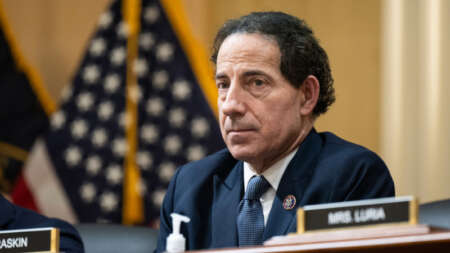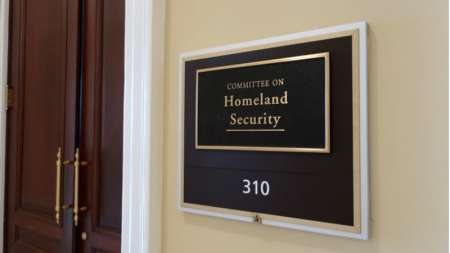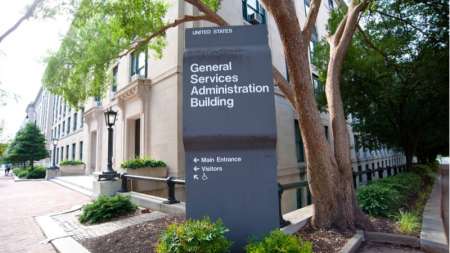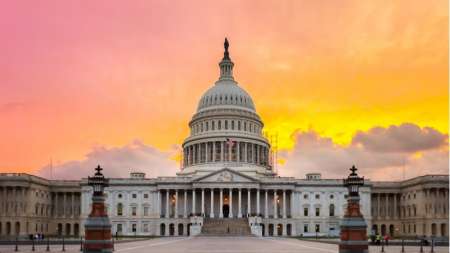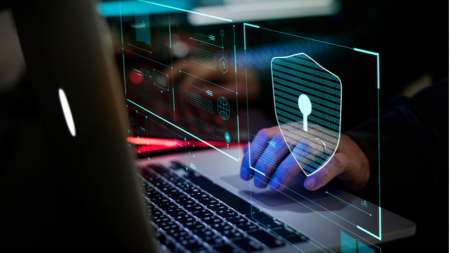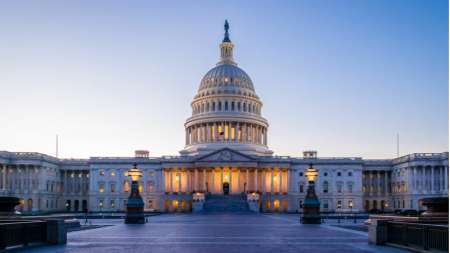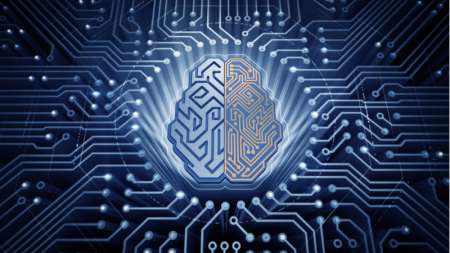Senate legislative efforts unveiled last week are targeting the development of artificial intelligence (AI) technologies from markedly different angles – one to prevent against some of the worst-case instances of AI tech deployment, and the other to make sure that Federal AI development efforts leave plenty of room for private sector participation. […]
Democratic lawmakers are lining up behind key Biden administration anti-fraud proposals, with a group of Senators unveiling legislation last week that includes key provisions to address systemic pandemic fraud and prevent future fraud schemes, and a key House lawmaker chiming in with legislation today. […]
Following fresh warnings from the Federal government that foreign hackers are targeting U.S. water systems for possible cyberattacks, two House members this week introduced legislation that would focus greater government attention on that threat. […]
The Senate Homeland Security and Governmental Affairs Committee voted today to approve the Multi-Cloud Innovation and Advancement Act, which aims to modernize and streamline the adoption of cloud computing technologies by Federal government agencies. […]
Leaders of the Senate Homeland Security and Governmental Affairs (HSGAC) Emerging Threats and Spending Oversight (ETSO) Subcommittee have debuted legislation to put in place stricter export controls to prevent adversary nations from gaining access to “sensitive technologies” – like artificial intelligence – created by U.S.-based firms. […]
Sen. Ron Wyden, D-Ore., unveiled draft legislation on Monday that would require the Federal government to set new cybersecurity and interoperability standards for collaboration software such as Microsoft Teams, Slack, and Zoom. […]
Sens. Gary Peters D-Mich., chairman of the Senate Homeland Security and Governmental Affairs Committee, and Ted Cruz, R-Texas, have introduced legislation that looks to speed up and streamline the Federal procurement process for agencies and their contractors. […]
A new bipartisan bill in the House would require the Department of Homeland Security (DHS) to deliver a plan to Congress on how it can integrate emerging technology such as AI and machine learning at the border. […]
Sens. Gary Peters, D-Mich.,?chairman of the Senate Homeland Security and Governmental Affairs Committee, and Joni Ernst, R-Iowa, introduced bipartisan legislation today to increase transparency and oversight of Federal telework policies. […]
Sens. Gary Peters, D-Mich., chairman of the Senate Homeland Security and Governmental Affairs Committee (HSGAC), and Mitt Romney, R-Utah, ranking member of the HSGAC Subcommittee on Spending Oversight, introduced a new bill on March 28 to help strengthen oversight of Federal spending and reduce fraud. […]
Sens. Gary Peters, D-Mich., and John Cornyn, R-Texas., have introduced new legislation that would hold Federal agencies and officials more accountable for retaining records of their electronic communications. […]
New legislation introduced in the House by Reps. Clay Higgins, R-La., and Eric Burlison, R-Mo., would put limits on how the IRS can use AI technology – specifically in choosing whose tax returns to audit. […]
Members of the House Oversight and Accountability Committee on both sides of the aisle had nothing but good things to say about two major pieces of Fed-tech legislation today – one to reform the Federal Information Security Modernization Act (FISMA) and another to codify Federal governance of agency AI systems – during a full committee markup session today. […]
Rep. Pete Sessions, R-Texas, has introduced legislation that aims to create more transparency into work being done by the General Services Administration’s (GSA) Technology Transformation Services (TTS) organization, which is in charge of implementing modernized technologies across the Federal government. […]
Rep. Don Beyer, D-Va., said today he’s hopeful that Congress will work together in a bipartisan way to approve between five and 10 meaningful AI-related bills this year, leveraging a proposed House AI working group to help get that job done. […]
Senate Finance Committee leadership released a bipartisan framework of legislation on Feb. 8 that would make key improvements to the nation’s unemployment insurance (UI) system, including the implementation of new technology. […]
The House Oversight and Accountability Committee on Feb. 6 voted to approve the Government Service Delivery Improvement Act, which aims to improve customer experience and accountability across the Federal government in part by creating a new senior management position at the Office of Management and Budget (OMB) devoted to improving customer experience. […]
The race to develop regulations for artificial intelligence technologies is on, and members of the House of Representatives are hoping to set up their own AI working group this month to help craft comprehensive regulations. […]
The Senate Homeland Security and Governmental Affairs Committee (HSGAC) today approved two bills related to cybersecurity and software – the Industrial Control Systems Cybersecurity Competition Act and the Source Code Harmonization And Reuse in Information Technology (SHARE IT) Act. […]
Sens. Gary Peters, D-Mich., chairman of the Senate Homeland Security and Governmental Affairs Committee, and Mike Braun, R-Ind., introduced bipartisan legislation this week to broaden the scope of the President’s Cup Cybersecurity Competition. […]
A bipartisan pair of senators has introduced legislation that would require the IRS to implement barcode technology to speed up the agency’s tax filing process while saving money for the agency. […]
New legislation introduced last week by Sens. Ted Cruz, R-Texas, and Gary Peters, D-Mich., would require agencies to share custom-developed source code with each other in an effort to reduce duplicative software contracts across the Federal government. […]
Sens. Gary Peters, D-Mich., chairman of the Senate Homeland Security and Governmental Affairs Committee, and Joni Ernst, R-Iowa., introduced legislation late last week that looks to streamline contract requirements across the Federal government. […]
Reps. Don Beyer, D-Va., and Anna Eshoo, D-Calif., have introduced new legislation that aims to make artificial intelligence models more transparent by requiring the creators of these models to make certain information publicly available to consumers. […]
The House Foreign Affairs Committee on Dec. 13 voted unanimously to approve legislation that aims to speed up processing times for obtaining U.S. passports through a variety of actions including the application of commercially available technology. […]
Half a dozen Democratic senators introduced legislation on Dec. 12 that would require all Federal agencies that use AI technology to create an office of civil rights to manage concerns about the possibility of AI biases that could lead to discrimination. […]
The House voted today to approve the fiscal year 2024 National Defense Authorization Act (NDAA), which features a 5.2 percent pay raise for military personnel, and represents a 3 percent year-over-year spending increase. […]
The House Science, Space, and Technology Committee on Nov. 29 unanimously voted to approve legislation to reauthorize the 2018 National Quantum Initiative Act, which will enable Federal agencies to continue ongoing research into quantum computing technology. […]
Sen. Catherine Cortez Masto, D-Nev., has reintroduced three pieces of legislation focused on strengthening data privacy protections for Americans’ personal information, and tasking the Federal government with research work to improve online data privacy for consumers. […]
A bipartisan pair of lawmakers has introduced legislation that would prohibit the Federal government from using blockchain technology developed in China or other nations deemed adversarial to the U.S. out of concern that the foreign-made technology could be used to access U.S. national security intelligence. […]


